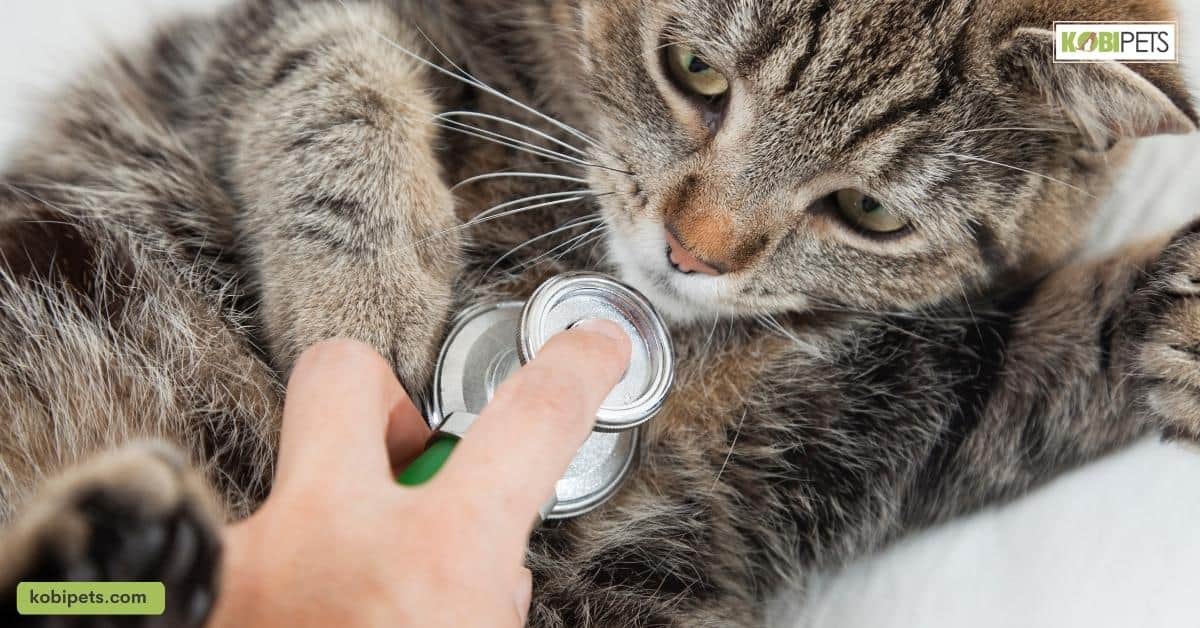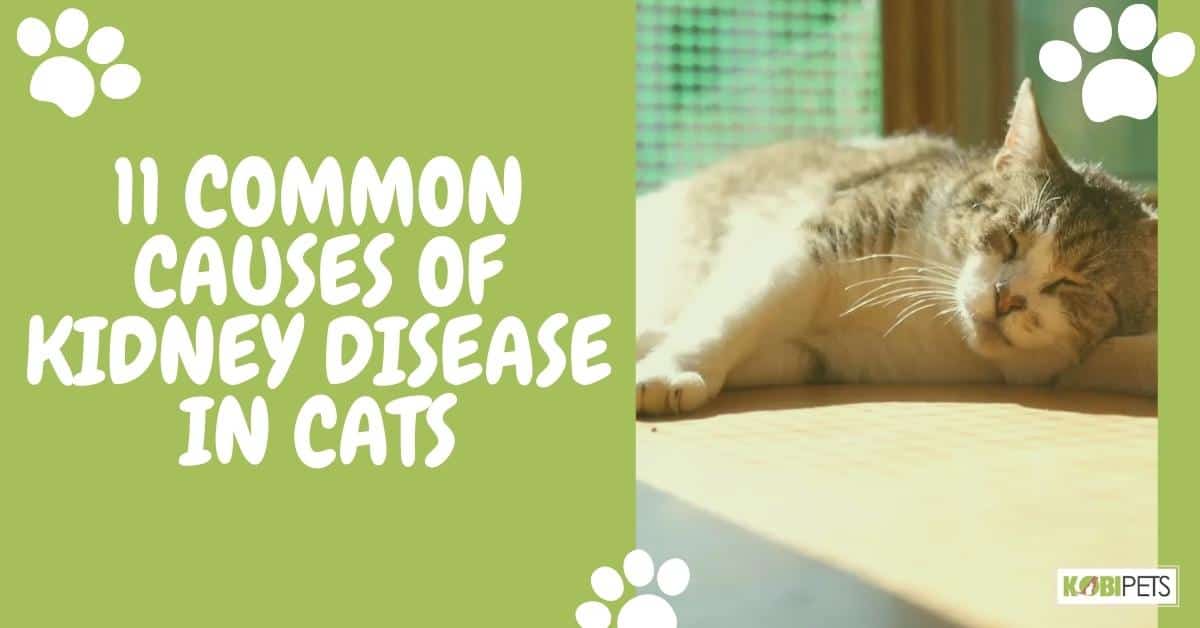
Kidney disease can occur for a variety of reasons and is very common in cats of all ages. Some common causes include Chronic Renal Failure (CRF), Feline Lower Urinary Tract Disease (FLUTD), kidney stones, kidney infection (pyelonephritis), and more.
Kidney disease is one of the most common conditions that cats can suffer from. It’s important to be aware of the 11 common causes of kidney disease in cats so that if these symptoms arise, you can provide early medical attention and help improve their quality of life.
1. Chronic Renal Failure (CRF)
Chronic Renal Failure (CRF) is a common cause of kidney disease in cats, and it is a complex condition marked by gradual deterioration of their kidneys – something that can limit life expectancy for cats with the disorder.
In an effort to slow or halt this deterioration, veterinarians often suggest changes to the cat’s diet, lifestyle, and sometimes medication. These changes are meant to improve hydration, reduce waste buildup in the body, and give the feline necessary nutrition while reducing demands placed on their aging or damaged kidneys.
If your cat has been diagnosed with CRF, work with your vet to create a comprehensive treatment plan that can help keep them comfortable and living long lives.
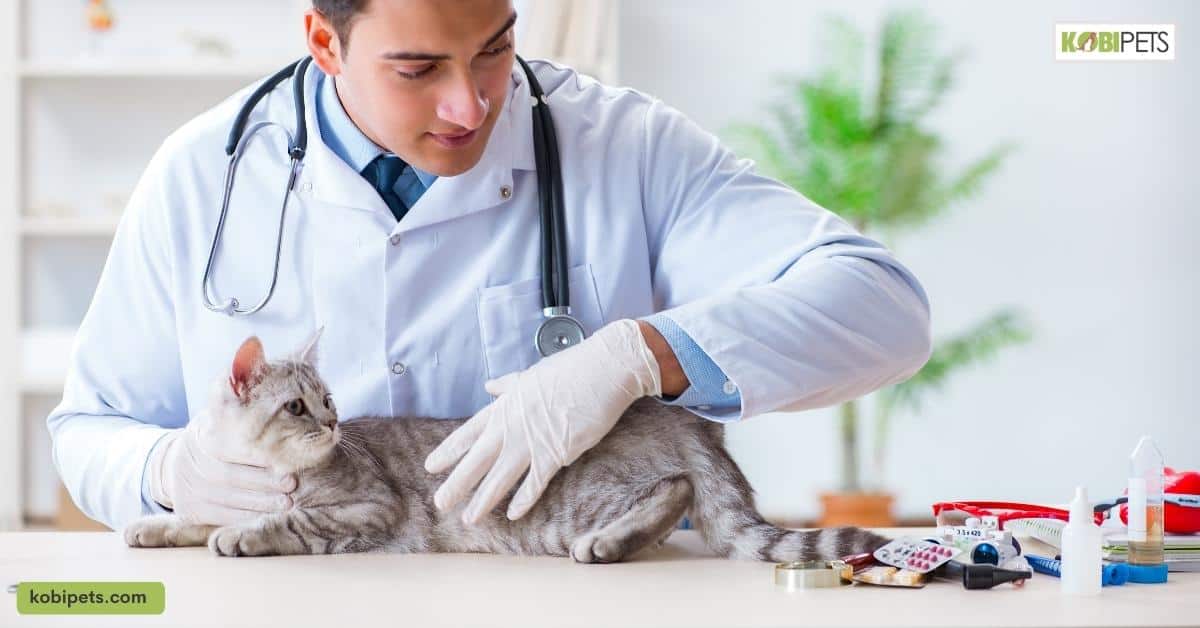
2. Feline Lower Urinary Tract Disease (FLUTD)
Feline Lower Urinary Tract Disease (FLUTD) is a common cause of kidney disease in cats, and it refers to any condition that can affect their lower urinary tract. This often includes blockages of the urethra which prevents the cat from being able to urinate naturally, as well as infections like cystitis which inflames and irritates the bladder lining.
Some cases are linked to metabolic problems such as diabetes or lack of sufficient nutrition, while others have underlying genetic causes. Treatment of FLUTD may require antibiotics for infection, dietary changes to improve your cat’s nutrition, and potentially surgery where the bladder is blocked.
Any sudden changes in urination habits should always be reported to your veterinarian for diagnostics and treatment.
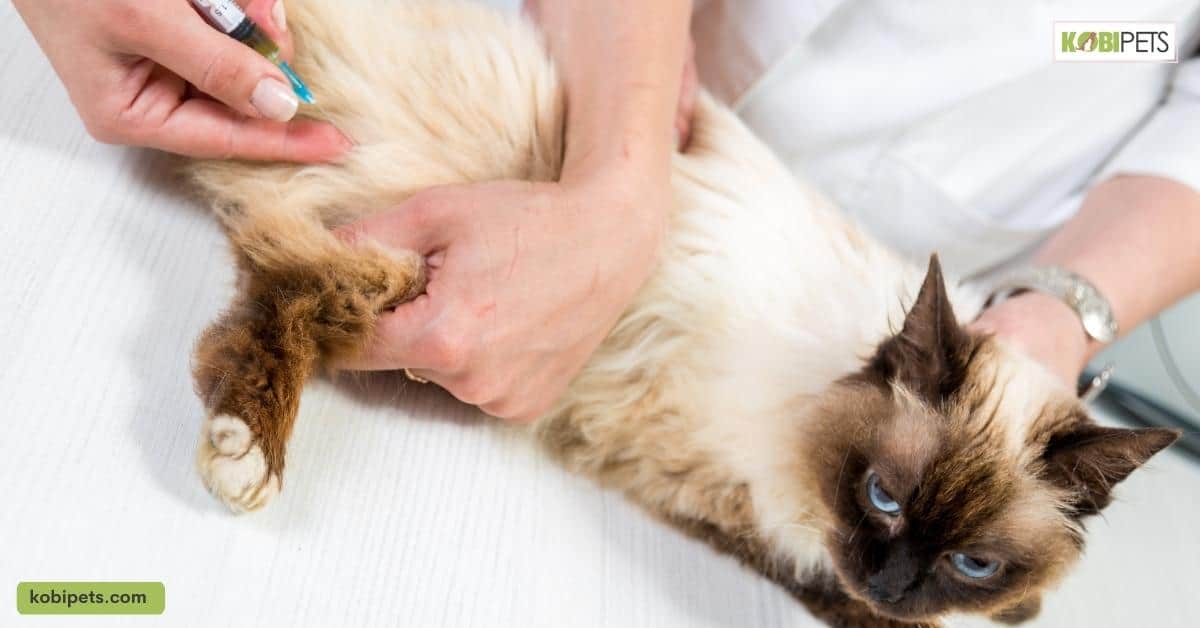
3. Kidney Stones
Kidney stones are a common cause of kidney disease in cats. The condition, scientifically known as enteroliths, occurs when crystals form within the urinary tract and block the flow of urine.
These stones may vary in size and can either remain trapped or travel along the ureter to the bladder, causing severe pain and discomfort to felines. The crystalline stones form due to a variety of factors such as bacterial infections, nutritional deficiencies, inadequate hydration levels, structural abnormalities within the urinary system, and excessive consumption of certain minerals or drugs.
Veterinarians typically diagnose this disorder with an ultrasound exam or CT scan and treatment may involve breaking up the stone surgically or through dietary changes. To help prevent the recurrence of stones, it is important for cats to receive regular checkups with their veterinarian for early detection and timely management.

4. Kidney Infection (Pyelonephritis)
Kidney infection, also known as pyelonephritis, is a common cause of kidney disease in cats. Pyelonephritis occurs when bacteria or fungi enter the urinary tract, migrate to the kidneys, and cause an infection.
Signs of a kidney infection include fever, weight loss, excessive drinking and urinating, lethargy, decrease in appetite, vomiting, abdominal pain, and poor coat condition. If left untreated pyelonephritis can be quickly fatal.
As such it is important to speak with your veterinarian if you suspect your cat has a kidney infection so that treatment can start as soon as possible. Treatment typically consists of antibiotics and fluids in order to help flush out the system as well as reduce swelling and bladder discomfort.
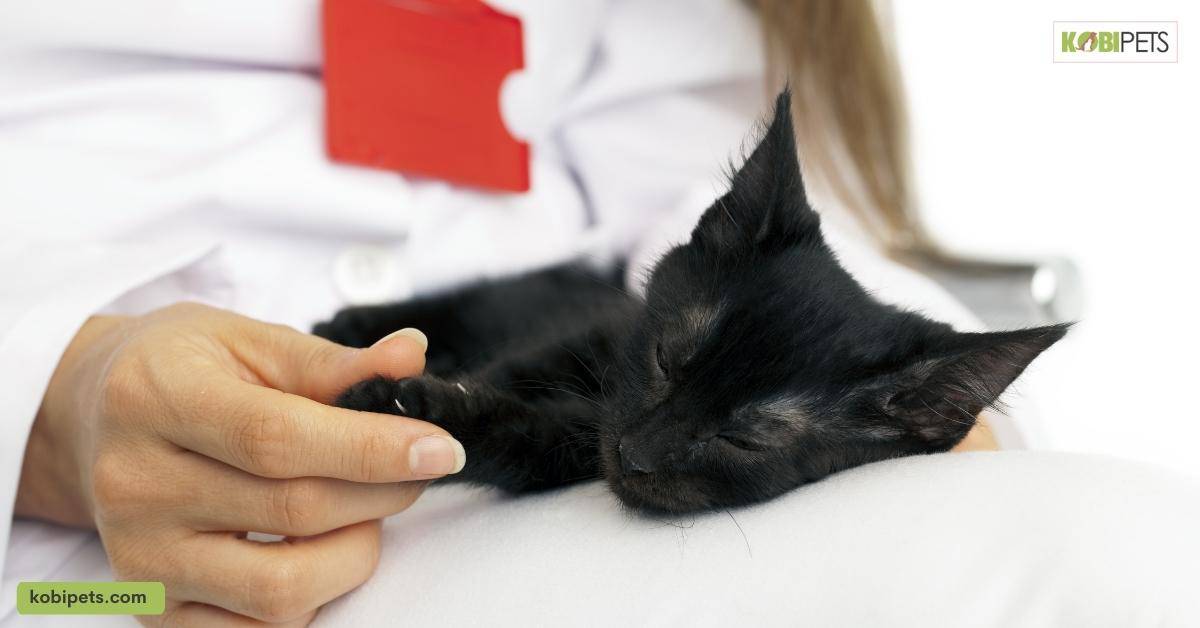
5. Chronic Dehydration
Chronic dehydration is a major contributing factor to kidney disease in cats. Dehydration affects the kidneys’ ability to filter waste and toxins, which can lead to long-term damage of the organ.
Unfortunately, cats are especially prone to dehydration, due to their low water intake and high concentration of proteins in their diets. To ensure that your cat maintains healthy hydration levels, it is important to regularly provide fresh, clean water for your pet, as well as monitor their drinking habits.
Additionally, you will want to pay close attention to the amount of sodium in any processed foods that your cat is consuming — too much salt can prevent the body from retaining necessary fluids.
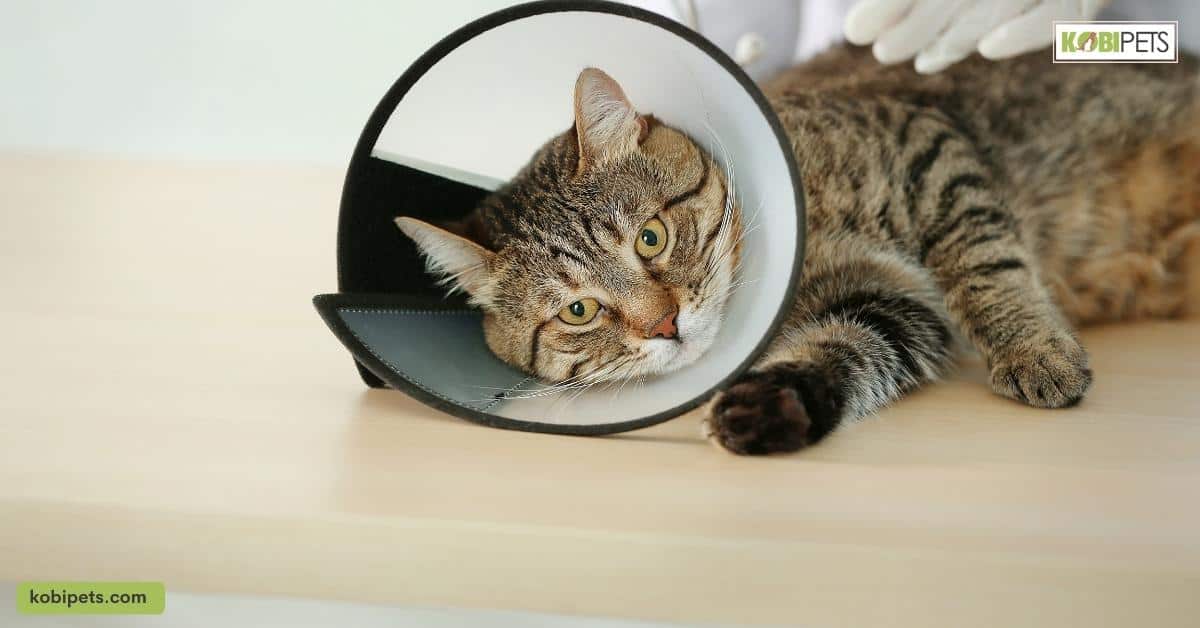
6. Urinary Blockages
Urinary blockages are one of the most common causes of kidney disease in cats. These blockages can be caused by a variety of factors, such as urethral plugs, foreign objects, bladder stones, and tumors.
Urethral plugs are formed when excess mucus accumulates and forms clumps within the urethra. Foreign objects like hair ties or string can also become lodged in the urethra, resulting in an obstruction.
Bladder stones form from dissolved minerals that accumulate in the bladder and solidify into mineral deposits. Finally, tumors growing in or around the urinary or digestive tract can cause blockages that lead to kidney disease.
It is common for cats to experience one or more of these types of urinary blockages which can be extremely uncomfortable and potentially dangerous if left untreated.
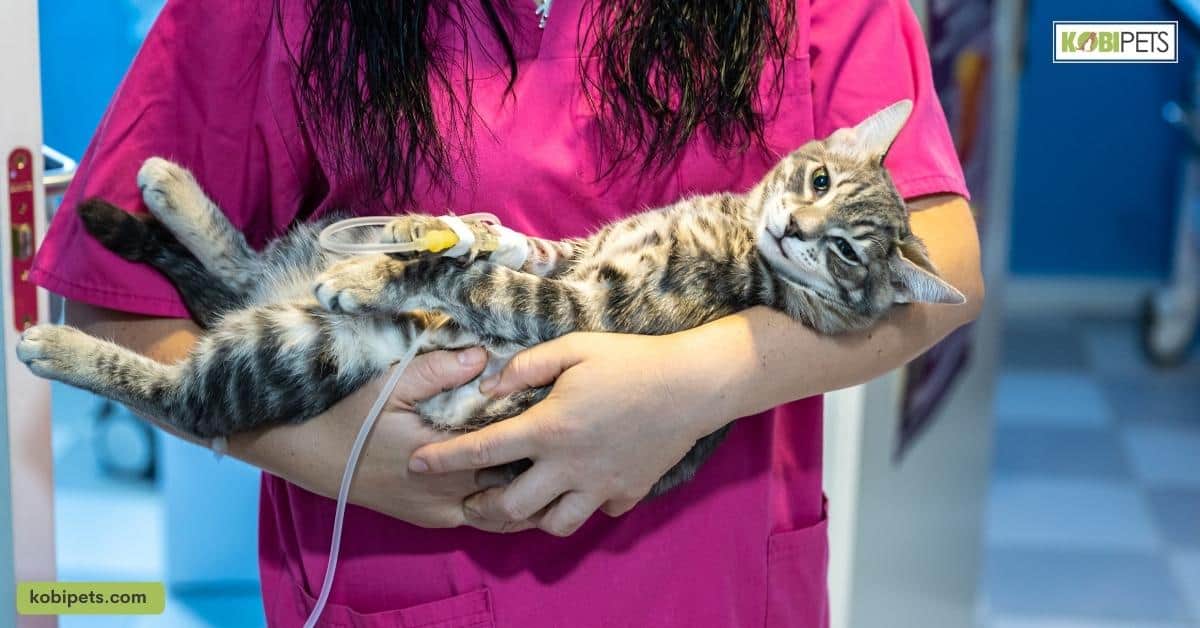
7. High Blood Pressure (Hypertension)
High blood pressure, or hypertension, is a common contributor to kidney disease in cats. Hypertension can cause damage to the nephrons within the kidney, leading to reduced functioning and potential tissue damage.
The most common causes of hypertension in cats include chronic renal failure or disease, systemic diseases such as hyperthyroidism, diabetes mellitus, or heart disease; and an underlying endocrine tumor.
Uncorrected high blood pressure can rupture fragile blood vessels within the kidneys leading to significant damage and increased risk for other health problems such as blindness and stroke. Therefore, it is important for cat owners to work with their veterinarian if their cat is suffering from any condition that could lead to hypertension in order to prevent long-term complications.
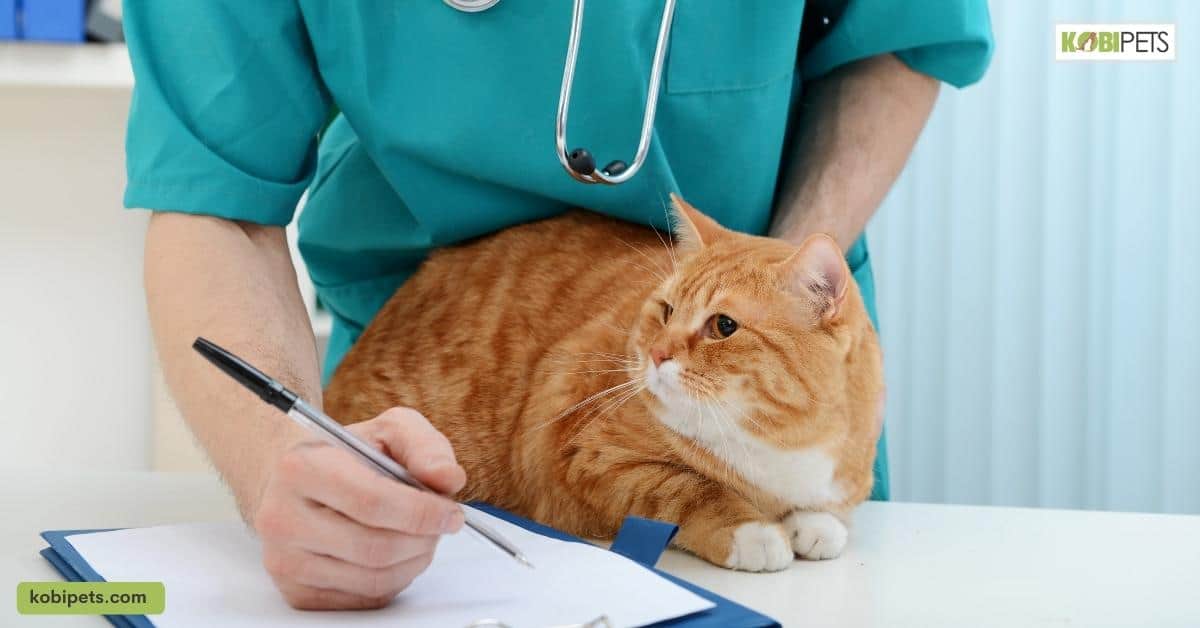
8. Polycystic Kidney Disease (PKD)
Polycystic kidney disease (PKD) is an inherited genetic disorder that causes cysts to form in the kidneys of cats. This buildup of cysts can cause renal failure and other serious health issues for affected cats.
As PKD is a genetic disorder, it typically affects purebred cats; however, this trait can be passed down in any breed. Because the symptoms may not appear until several months after birth, many owners are unaware their cat has this condition until later in life.
Diagnosis typically involves an ultrasound examination or biopsy which helps identify the cysts and confirm a diagnosis of PKD. Early diagnosis and treatment are key to helping cats with this condition lead longer and healthier lives.
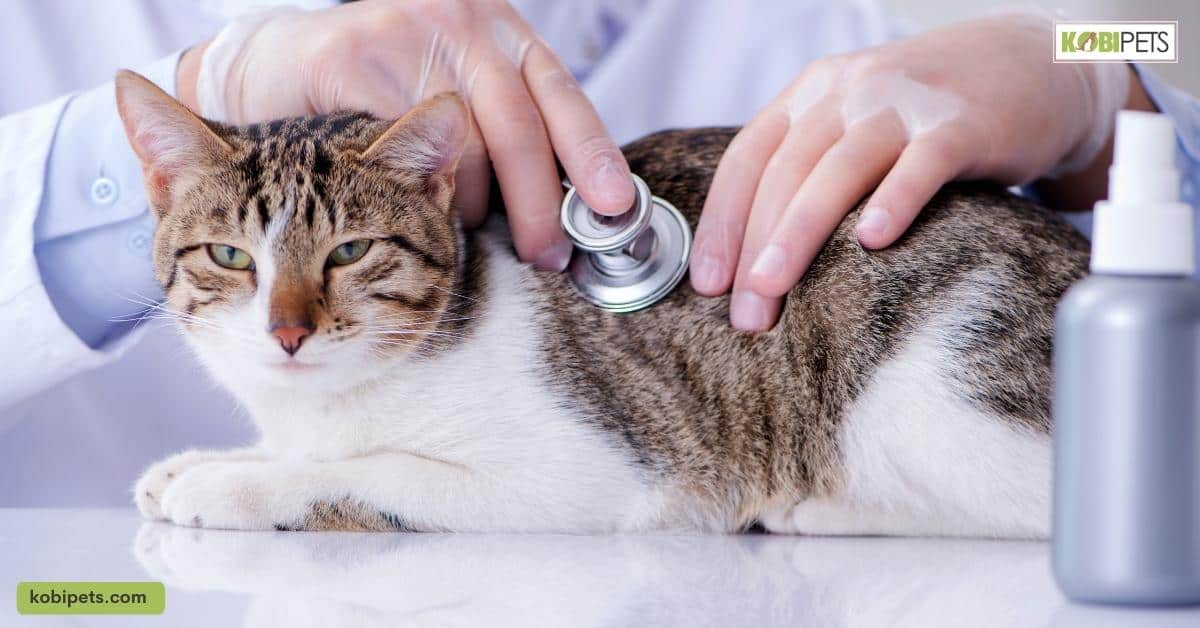
9. Structural Abnormalities or Congenital Defects
Kidney disease in cats can arise from congenital defects, inherited conditions, or structural abnormalities that were present at birth. These issues often result in the development of kidney stones, partial blockages of the urinary tract, or malfunctioning kidneys that do not properly filter toxins from the bloodstream.
Early diagnosis and treatment of these issues are critical for minimizing symptoms and preventing further damage to the kidneys. Treatment options can include diet modifications and supplements to help reduce inflammation as well as surgery to remove any urinary obstructions or to repair any damaged organs.
Your veterinarian can provide support throughout the diagnostics and treatment process and will be able to provide you with a customized treatment plan depending on your cat’s condition.
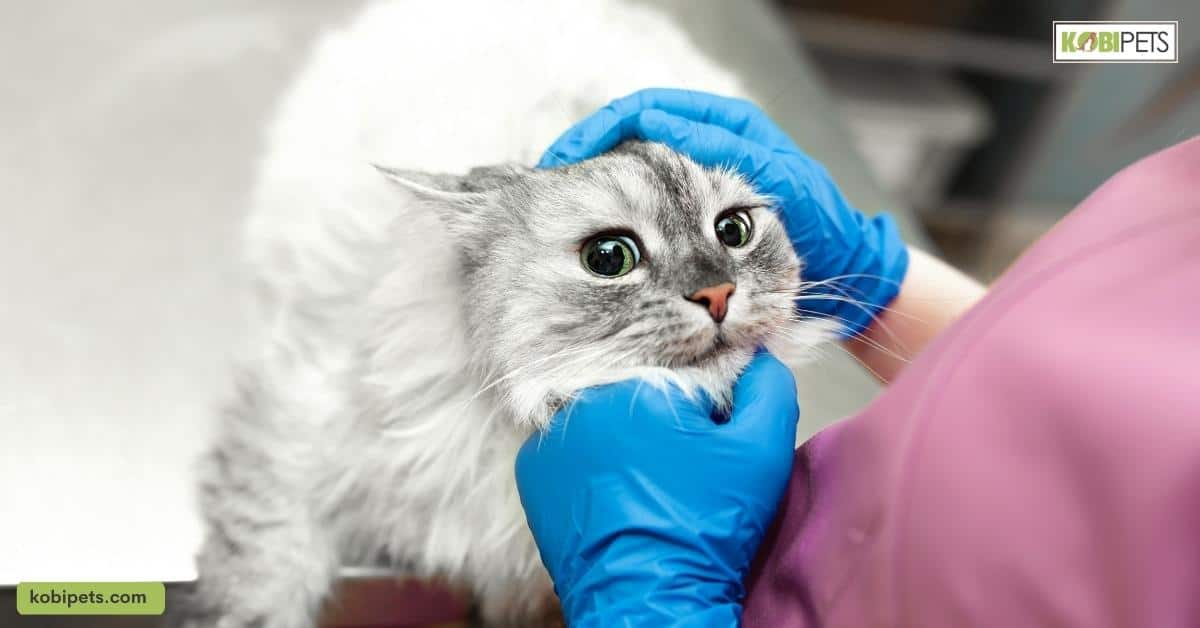
10. Exposure to Toxins (Such as Antifreeze)
Kidney disease in cats can be caused by a number of factors, but exposure to toxins is one of the most common. When cats are exposed to toxins such as antifreeze, which often contains ethylene glycol, their kidneys can become damaged and lead to renal failure.
In addition to antifreeze, other common sources of these types of toxins for cats include rat poison, insecticides, herbicides, and certain chemicals used around the home or garden. Fortunately, it is possible for cat proprietors to take steps to protect their pets from these kinds of harmful substances.
Whenever purchasing any type of chemical or detergent, be sure that it explicitly states on the packaging that it is safe for use with animals. Additionally, store all hazardous liquids away from pets and dispose of them properly when no longer needed. Lastly, regular check-ups with the veterinarian can help ensure your pet’s health and well-being.
11. Immune-Mediated Disease (Such as Systemic Lupus Erythematosus)
Systemic Lupus Erythematosus (SLE) is one of the immune-mediated diseases that is commonly seen to cause kidney disease in cats. This condition may be idiopathic, meaning it has no identifiable cause, or it can be triggered by certain drugs or other factors.
SLE causes the body’s immune system to behave abnormally, creating antibodies and attacking cells and tissue throughout the body including in the kidneys. When this happens, inflammation is triggered as well as damage to organs and other tissue.
Common signs of kidney failure due to SLE include anorexia, weight loss, depression, frequent urination, and increased water intake. Treatment typically involves maintaining hydration, controlling secondary infections with antibiotics if necessary and immunosuppressant medications to suppress the abnormal behavior of the immune system.
If left untreated, this condition can lead to end-stage renal disease or death. It’s important for pet owners to recognize any warning signs their cats might show and seek veterinary care quickly since early diagnosis and treatment are important for the successful management of SLE cases in cats.
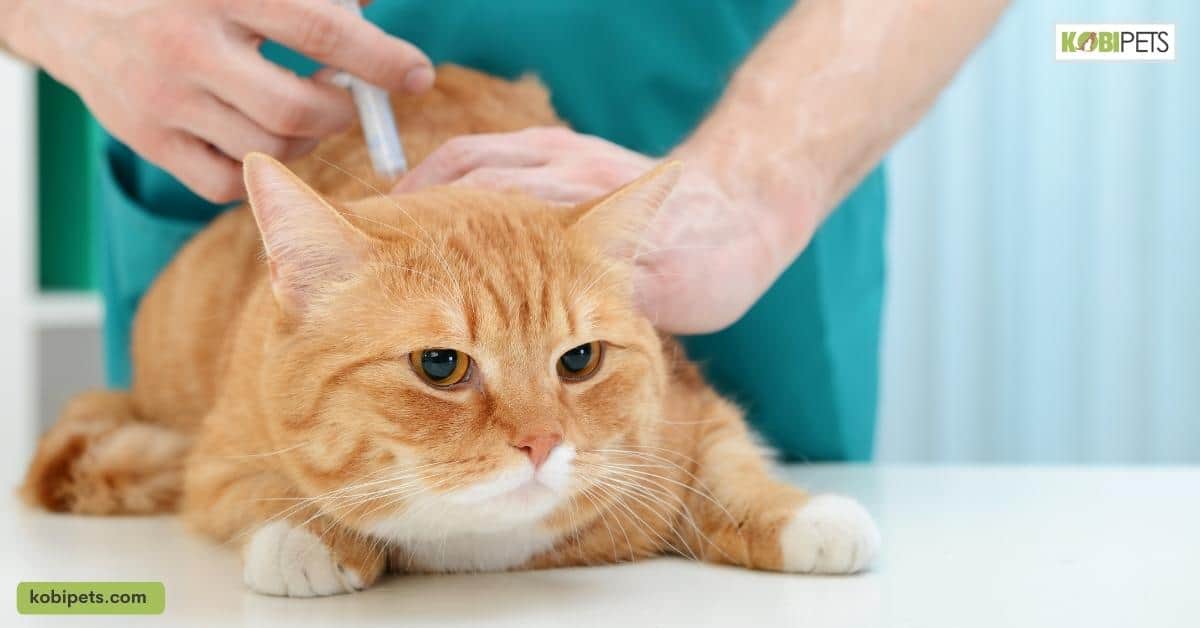
In Conclusion
Kidney disease in cats can occur for a variety of reasons and is very common in cats of all ages. Some common causes include Chronic Renal Failure (CRF), Feline Lower Urinary Tract Disease (FLUTD), Kidney Stones, Kidney Infection (pyelonephritis), Chronic Dehydration, and more.
It is important for cat owners to be aware of the warning signs their cats may exhibit and seek veterinary care quickly, as any delay in diagnosis or treatment may have serious consequences. With early detection and prompt medical intervention, many cases of kidney disease can be managed successfully.
